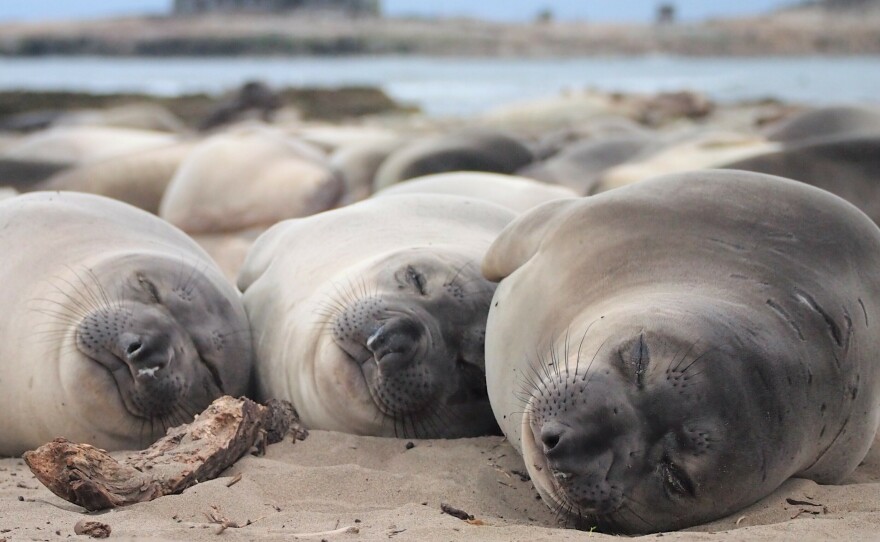
Groundbreaking research has revealed that elephant seals sleep just two hours daily during their months-long foraging migrations in deep dives. The study, conducted by researchers at the University of California Santa Cruz, recorded brain activity in free-ranging, wild marine mammals, making it the first of its kind. Elephant seals typically sleep in short bursts of 10 minutes while performing deep, 30-minute dives, often spiraling downwards while dreaming, and occasionally taking naps on the seafloor.
The findings show that during their foraging migrations into the North Pacific Ocean, elephant seals rival the record for the least sleep among all mammals, currently held by African elephants. The scientists believe that sleeping while diving allows the seals to avoid predation by predators such as sharks and killer whales, which attack them at the ocean surface. Therefore, they spend only a few minutes on the surface to take a breath between dives.
The researchers fitted 13 young female seals with a neoprene headcap to secure sensors on the head that could reliably record brain waves in an electroencephalogram (EEG) scan. They also used time-depth recorders, accelerometers, and other instruments to track the seals’ movements. The recordings collected during more than 100 dives revealed that as the seals descended, they entered a deep sleep stage known as slow-wave sleep while maintaining a controlled glide downwards and then entered rapid-eye-movement (REM) sleep. During REM sleep, sleep paralysis causes them to turn upside down and drift downwards in a «sleep spiral.»
The study has important implications for understanding the sleeping patterns and behaviours of marine mammals, as well as the potential impacts of anthropogenic activities on these animals’ sleep, such as underwater noise pollution. The team now plans to use similar methods to study brain activity in other species of seals, sea lions, and human free divers.
Prof Daniel Costa, a marine ecologist at the University of California Santa Cruz and senior author of the study, stated, «For years, one of the central questions about elephant seals has been when do they sleep. Now we’re finally able to say they’re definitely sleeping during those dives, and we also found that they’re not sleeping very much overall compared to other mammals.»